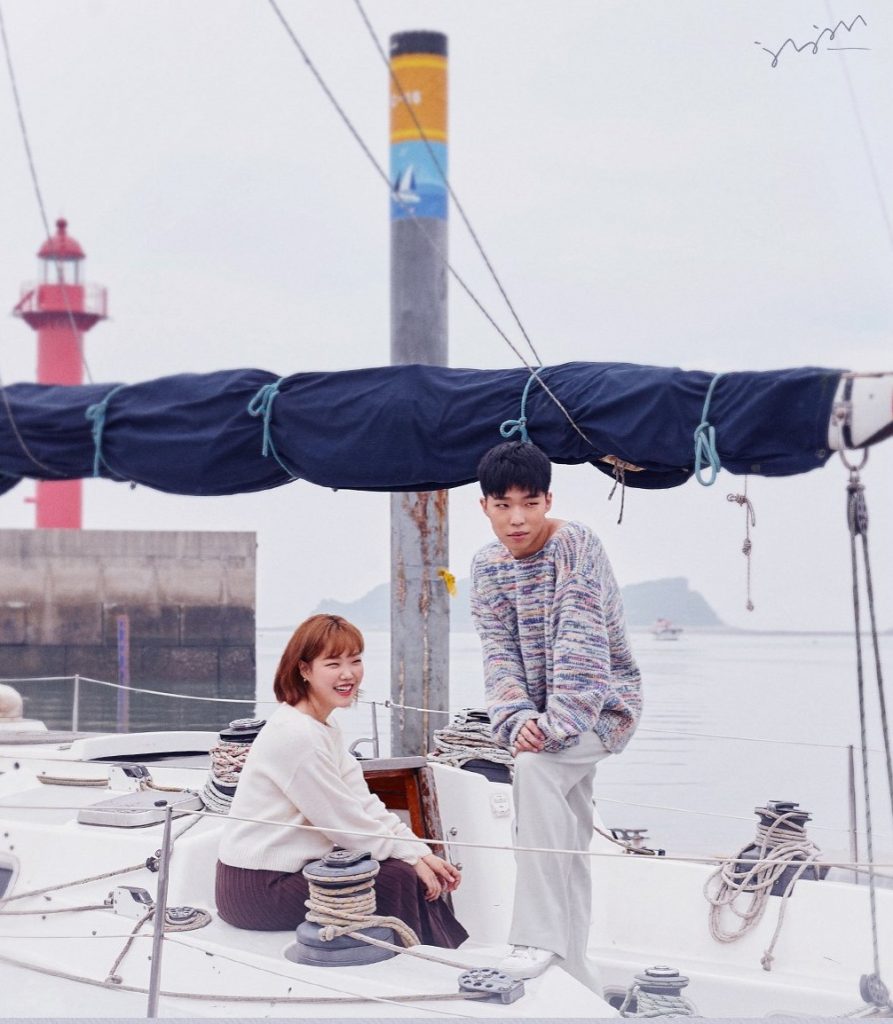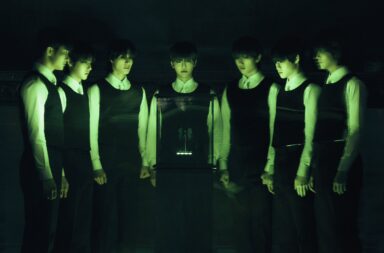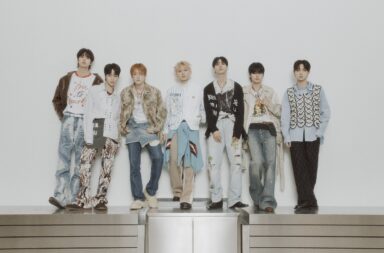
Having officially grown from Akdong Musician into AkMu since Chanhyuk’s return from his military service, the sibling duo has returned with their new full album, Sailing. Famous for their signature playful folk-pop style, and also for their more soulful pieces, AkMu’s long break since their last music release in 2017 has clearly been a time for maturing. Sailing retains some of the duo’s original style, yet also marks a determined move towards less familiar waters.
The album is firmly dedicated to its theme; from the blue and grey aesthetics to the water-inspired lyrics, Sailing is an ode to the ocean. That is not to say that every song is about the ocean, but that the ideas and feelings within them feel inspired by it, or the songs themselves recreate universal emotions that we feel in the presence of it. Chanhyuk’s service in the marines seems to have played a large role in the album’s theme, especially as he has mentioned that he wrote some songs onboard a ship. The way that the tracks explore different aspects of and emotions rising from the sea is artfully done, especially the uncomfortable fusion of loneliness and familiarity, and of uneasiness and serenity.

Sailing’s intro track, “Chantey”, establishes the empty mood of the album. Through the slow build-up of vocals, acoustic guitar, cello, and later, violin, the song creates a calm, unnervingly cold atmosphere. That it only features Suhyun’s vocals adds to the solitary mood of the song, especially as a chantey is supposed to be “a song with alternating solo and chorus, of a kind originally sung by sailors while performing physical labor together”. Its simplicity, too, contributes to this: most of the tracks on the album shy away from sounding overcrowded, but “Chantey” particularly uses silence to its advantage. “Farewell”, also a Suhyun solo, makes use of silence too by providing a contrast to sound; this places more focus on the rawness of the vocals, and shows how a personal touch is needed to fill emptiness.

Feelings of calmness and quietude in the album are continued by the title song “How can I love the heartbreak, you’re the one I love”, “Moon”, “Whale”, and the lullaby-like “Endless Dream, Good Night”. In the face of something as vast as the ocean, it is natural to turn inwards and become contemplative. “Whale” explores this interestingly:
Maybe everyone’s trying to figure out
I don’t know if you want to cover the ocean
Oh, I admire your huge shadow
Your leisure on this wide ocean
The blend of confusion and admiration towards the whale suggests the lyrics’ approach to the concept of success and the aspiration towards a firm footing in the world. The whistling, and the light overlaying of Suhyun’s higher voice, over Chanhyuk’s, both contribute to a feeling of distance and detachment. There even seems to be a hint of envy at the sureness of the whale, but this changes into regard and results in personal ambition:
Whale, at least I want you to have the ocean
I want to spray water over the dry sky
By observing and learning from the ocean, the lyrics now suggest a desire to take part in the world too, instead of sitting passively amongst the waves and letting the world flow past.

The album does not only include slow, pensive tracks; songs such as “Fish in the water”, “Freedom”, “Should’ve loved you more” and “Let’s take time” are sprinkled throughout, often picking up the pace. The introduction of the electric guitar in “Freedom” creates an uplifting melody, inspiring an air of anticipation and promise. “Fish in the water”, on the other hand, has a more laid-back, road trip-like touch to it:
You must live, catch a straw, and remember my name
A word from the sea that loved the loneliness of being good at music
As we sing
As we say
May we live as if we were swimming
Live like the way we sing
Though the lyrics suggest that creating music makes one lonely, they still encourage it, and promote the idea of staying afloat and going along with life despite this loneliness, and that it is possible to become part of this flowing music.

The album ends with “Let’s take time”, which has the most noticeable beat from all the tracks, and is the most layered and complex, leaving little room for the silence of the intro, “Chantey”. This concludes Sailing on a louder and more confident note than it began with, demonstrating the movement throughout the album towards a sureness of direction, and finally ending with the music fading out slowly as if disappearing into the horizon.
What did you think of Sailing?
(Images via YG Entertainment. Lyrics via Genius [1] [2]. Nylon, Lexico.)


